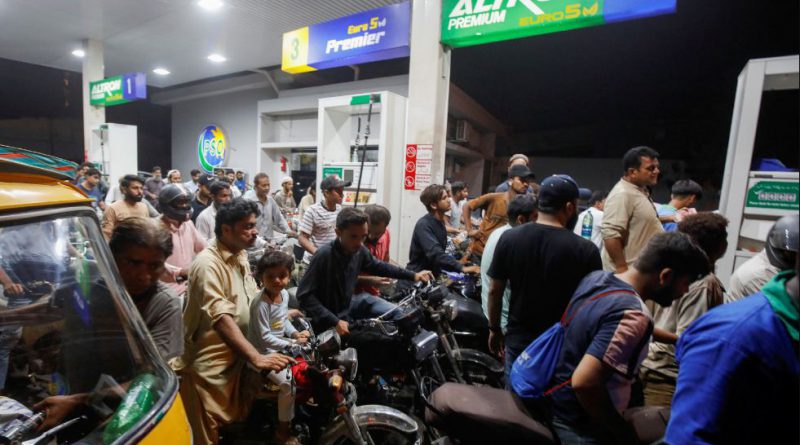IMF approves $3 bln bailout for cash-starved Pakistan
Islamabad (Reuters) – The International Monetary Fund’s board approved a $3 billion bailout programme for Pakistan which will immediately disburse about $1.2 billion to help stabilise the South Asian ailing economy, the lender said on Wednesday.
Pakistan and the Fund reached a staff level agreement last month, securing a short-term pact, which got more than expected funding for the country of 230 million, which faced an acute balance of payments crisis with only enough central bank reserves to cover barely a month of controlled imports.
The board’s approval was mandatory before disbursing the first tranche, with the rest to arrive later in instalments.
The IMF executive board “approved a 9-month Stand-By Arrangement (SBA) for Pakistan for an amount of SDR2,250 million (about $3 billion, or 111 percent of quota) to support the authorities’ economic stabilization program,” the lender said in a statement.
It said Pakistan faced “a difficult external environment, devastating floods and policy missteps have led to large fiscal and external deficits, rising inflation and eroded reserve buffers in FY23.”
The deal, a lifeline for Pakistan, which has been on the cusp of default, came after eight months of tough negotiations over fiscal discipline.
Prime Minister Shehbaz Sharif said the bailout was a major step forward in the government’s efforts to stabilise the economy and achieve macroeconomic stability. “It bolsters Pakistan’s economic position to overcome immediate- to medium-term economic challenges, giving next government the fiscal space to chart the way forward,” he said.
Terming it a milestone, Sharif said it was achieved against “the heaviest of odds & against seemingly impossible deadline.”
Sharif’s coalition government is due to face a national election this year and must undertake more painful fiscal discipline measures to satisfy the IMF. It included the central bank raising its policy interest rate to a record high of 22% while ordinary Pakistanis struggle with inflation running at about 29% and the government raising 385 billion rupee ($1.39 billion) in new taxes.
Policy Anchor
The IMF said the fresh funding will provide a policy anchor for addressing domestic and external imbalances and a framework for financial support from multilateral and bilateral partners.
“The program will focus on implementation of the FY24 budget to facilitate Pakistan’s needed fiscal adjustment and ensure debt sustainability, while protecting critical social spending; a return to a market-determined exchange rate and proper FX market functioning to absorb external shocks and eliminate FX shortages,” it said.
The IMF said it wanted Islamabad to ensure a tight monetary policy aimed at disinflation and further progress on structural reforms, particularly in the energy sector, state-owned enterprises governance and climate resilience.
The deal, which has already brought some relief to investors in the country’s stocks, exchange rate and bonds, will unlock more external financing.
Longtime allies Saudi Arabia and United Arab Emirates have deposited $3 billion in Pakistan’s central bank in the last two days. Sharif said China had rolled over $5 billion in loans in the last three months to save his country from default.
Fitch credit rating agency on Monday upgraded Pakistan’s sovereign rating to CCC from CCC-.


